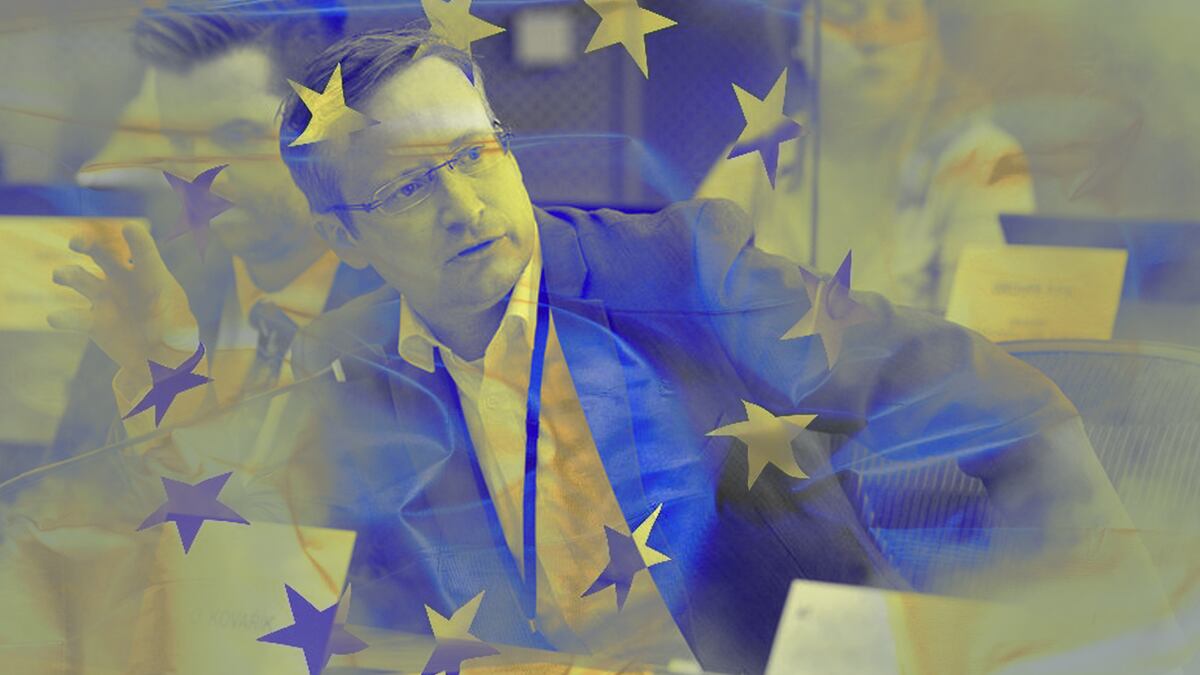- European Council members depart from crypto regulation standards by including staking and lending in latest crypto tax bill.
- Lawmakers and industry representatives worry taxing staking gains may but bloc at disadvantage
No sooner had the European Union ushered in its MiCA regulatory regime than a new tax bill now threatens to muddy the picture by letting the bloc’s member states define staking.
Both policymakers and industry representatives raised this concern after the European Council published its final version of the crypto tax reporting bill on Tuesday. The council, which helps shape the EU’s political priorities, stuck with the original proposal to include lending and staking under its definition of crypto activities.
This diverges from the regulatory scope defined by the EU’s crypto rulebook passed on the same day. The upshot: confusion.
Interlinked legislation
“The EU has led the way with regulating trading in crypto through MiCA, and if we want MiCA to be successful, we must be fully consistent when it comes to other pieces of legislation that are interlinked,” Ondrej Kovarik, a member of the European Parliament from the Czech Republic and a member of its Committee on Economic and Monetary affairs, told DL News.
The departure from the Markets in Crypto-Assets regulation, or MiCA, which will become law in the coming weeks, may put the EU at a disadvantage, policymakers and industry representatives warned.
NOW READ: UK takes steps to regulate crypto like gambling — does that mean you can trade Bitcoin tax free?
The so-called DAC8 bill is designed to bring crypto into the purview of taxable activities. This means that service providers like exchanges would need to provide tax authorities with relevant information on their customers’ holdings and identification details.
The rules, which are set to apply from January 2026 for the most part, would bring an end to untaxed crypto gains.
At the same time, jurisdictions like the UK are also looking into how it will tax crypto. In contrast to the run of play in the EU, a British parliamentary committee on Wednesday recommended treating cryptocurrency activities the same as gambling, which may exempt the asset class from capital gains taxes.
European Council calls the shots
Like any piece of proposed legislation in the EU, there’s still a long ways to go. The EU’s 27 member states would have to decide how to implement the new crypto tax law. The European Council, which directly represents the member states, makes the final call though the Parliament can still express its opinions.
Kovarik, a centrist who helped draft MiCA while it was negotiated in the Parliament, joined other MEPs in proposing an amendment to remove staking and lending from DAC8. But the amendment didn’t stick.
“All member states agreed to the full text of the Council position,” an EU official told DL News. “This follows detailed discussions at the level of experts of the national ministries, therefore we are confident that this version of the text meets the objectives which we hope to achieve.”
NOW READ: MiCA is here. There are nine other EU crypto laws you should know about
Another problem is the fact that staking has not been defined by the EU, according to Max Bernt, Chief Legal Officer at crypto taxation software firm Blockpit.
‘If things go really bad, states can start putting out their own definitions of staking and lending’
— Max Bernt
“If things go really bad, states can start putting out their own definitions of staking and lending because the European Union will take ages before it comes up with a legally binding definition,” Bernt said. Along with broad industry support, Bernt submitted feedback to EU officials in March, advocating against the inclusion of staking and lending as crypto asset services.
‘Gold plating’
The directive’s inclusion of staking and lending does not only depart from MiCA’s scope, but also from the Organisation for Economic Co-operation and Development’s recommendations.
The OECD published its Crypto-Asset Reporting Framework in October. In it, delegations from the world’s largest economies agreed to define the crypto service providers that would need to report to government authorities as those which facilitate trades between “relevant” crypto assets and fiat currencies.
However, the EU’s directive on crypto taxation, which otherwise greatly resembles CARF guidelines, expands this definition by including platforms offering crypto staking and lending services.
NOW READ: Code is not speech: ‘Wild theories’ won’t protect Alexey Pertsev, says lawyer
Under both guidelines, however, staking and lending would need to be reported. “The problem is that under DAC8, staking and lending is defined as a crypto asset service, which has an impact on the scope on which service providers are obliged to report,” Bernt said.
Bernt referred to the EU’s move as “gold plating”, as the bloc is “foreseeing a standard that is broader in scope than its international counterpart, namely CARF.”
Do you have a tip about crypto staking, regulation or another story? Reach out to me at inbar@dlnews.com.



